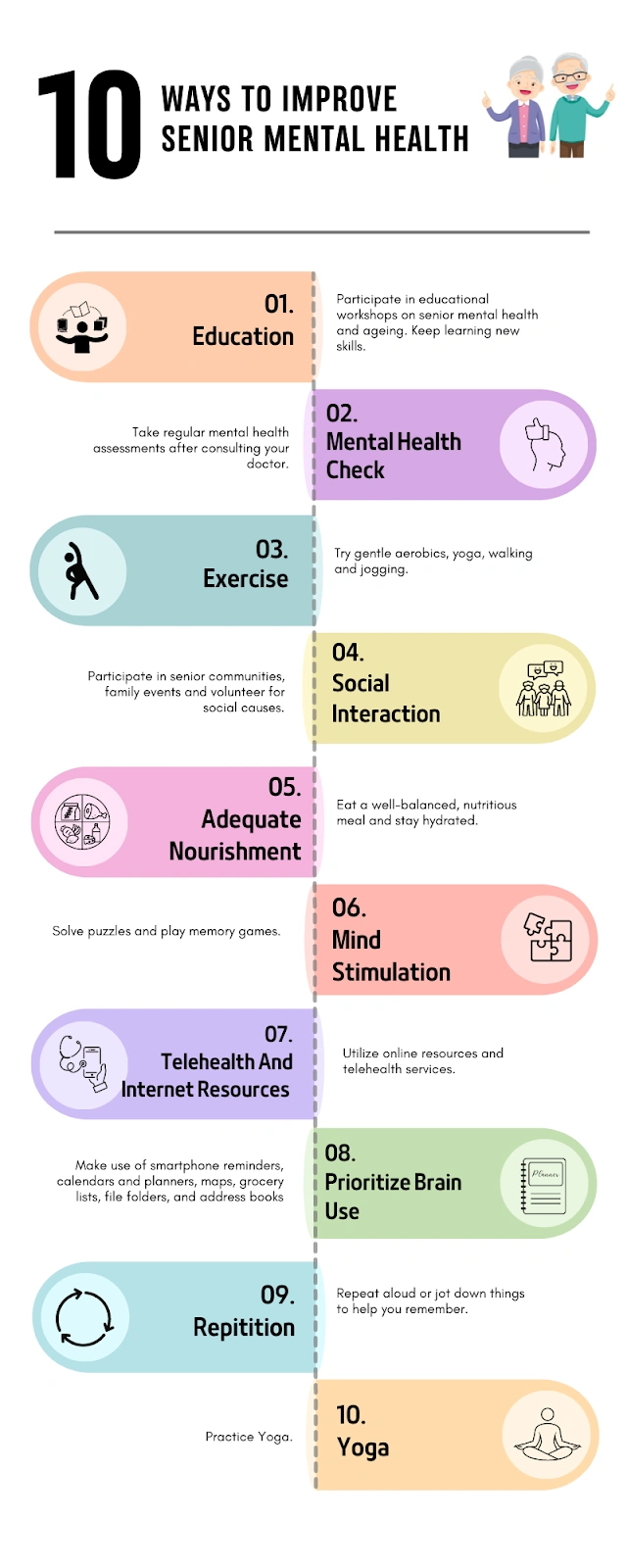Everyday habits to stimulate new neural connections, boost memory, and help keep dementia away


Everyday habits to stimulate new neural connections, boost memory, and help keep dementia away

When , how long it takes, Where , who, what factors affect the outcome

Stroke rehabilitation what to expect


Here’s how you can improve mental health in old people

What are Old age Homes for memory loss?

Living with Dementia Or Age Related Memory Loss– Dr Nilesh Shah – Part 1

Early Signs of Dementia

What Depression in the Elderly Looks Like & How to Get Help

Questions that you may ask the Physician if your seniors is showing signs of dementia


Alzheimer's disease is a debilitating condition that affects millions of people worldwide. It can be especially challenging for those who are in daycare, as they may feel isolated and unable to engage in meaningful activities. However, with the right approach, it is possible to create an environment that is both engaging and stimulating for Alzheimer's patients in daycare.
Visit Healthywrinkles if you are looking for any assistance with finding the best adult daycare center for seniors living with Alzheimer’s.
One of the most important activities for Alzheimer's patients in daycare is social interaction. Engaging in conversation with other individuals, playing games, or participating in group activities can help reduce feelings of loneliness and isolation. It can also provide a sense of community and support, which is critical for maintaining good mental health.
Another key aspect of daycare activities for Alzheimer's patients is physical activity. Engaging in light exercises, such as gentle stretching or walking, can help improve mobility and balance. This can be especially beneficial for those who may be experiencing difficulty with physical tasks, such as getting in and out of a chair or walking unassisted. Additionally, physical activity has been shown to improve cognitive function in people with Alzheimer's disease.
Know more about living with dementia from our experts.
Arts and crafts activities can also be very beneficial for Alzheimer's patients in daycare. Engaging in activities like painting, drawing, or scrapbooking can help stimulate the mind and promote creativity. These activities can also provide a sense of accomplishment and help build self-esteem.
Music therapy is another effective form of stimulation for Alzheimer's patients in daycare. Listening to music, singing along, or playing instruments can help improve memory and reduce feelings of anxiety or depression. It can also provide a source of enjoyment and positive emotions, which can be especially important for those with Alzheimer's.
Finally, cognitive stimulation activities, such as puzzles, memory games, and crosswords, can help maintain and improve cognitive function in Alzheimer's patients. These activities can help stimulate the mind, improve focus and concentration, and provide a sense of purpose and accomplishment.
In conclusion, daycare activities for Alzheimer's patients should be designed to provide social interaction, physical activity, creative stimulation, music therapy, and cognitive stimulation. These activities can help reduce feelings of loneliness and isolation, improve physical and cognitive function, and provide a sense of purpose and accomplishment for individuals with Alzheimer's disease. By creating an environment that is engaging and stimulating, daycare providers can help improve the quality of life for those with Alzheimer's and provide them with the support they need to live well.
"Join the cause and make a difference in a senior's life - share your knowledge about local senior care resources today!"